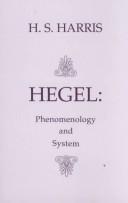| Listing 1 - 10 of 44 | << page >> |
Sort by
|
Book
Year: 1966 Publisher: Bruxelles: Presses universitaires de Bruxelles,
Abstract | Keywords | Export | Availability | Bookmark
 Loading...
Loading...Choose an application
- Reference Manager
- EndNote
- RefWorks (Direct export to RefWorks)
Book
ISBN: 9782359250008 2359250000 Year: 2009 Publisher: Paris : La Découverte : Les empêcheurs de penser en rond,
Abstract | Keywords | Export | Availability | Bookmark
 Loading...
Loading...Choose an application
- Reference Manager
- EndNote
- RefWorks (Direct export to RefWorks)
Book
Year: 1968 Publisher: Paris: Aubier,
Abstract | Keywords | Export | Availability | Bookmark
 Loading...
Loading...Choose an application
- Reference Manager
- EndNote
- RefWorks (Direct export to RefWorks)
Book
ISBN: 9780231199056 023119904X 0231199058 9780231199049 Year: 2020 Publisher: New York, N.Y.: Columbia university press,
Abstract | Keywords | Export | Availability | Bookmark
 Loading...
Loading...Choose an application
- Reference Manager
- EndNote
- RefWorks (Direct export to RefWorks)
"Few works have had the impact on contemporary philosophy exerted by Hegel's Phenomenology of Spirit. Twentieth-century philosophers in France were bound together by a reading of Hyppolite's translation and commentary. Sartre, Merleau-Ponty, Lacan, and Bataille were all shaped by Kojève's lectures on the book. Late twentieth-century philosophers such as Derrida, Lyotard, Deleuze, and Irigaray all operate against a Hegelian horizon. Similarly, in Germany Heidegger, Adorno, and Habermas developed their philosophies in large part through an engagement with Hegel. In the United States the book has had a profound influence on feminism and gender studies. Thinkers as diverse as Butler, Benhabib, Mills, and Honig have developed political theories as well as theories of sexual difference by rereading Hegel's reading of Antigone. As Derrida suggests, this text must be read. It lays out the infrastructures and architectures of life in the modern nation state. It unfolds a grand narrative of the ways of thinking and acting that comprise human experience in "our time." The purpose of the text is to effect a transformation in readers, so that they cease to think of themselves as particular humans and come to know that their existence inheres in membership in a complex community-social, cultural, economic, religious, aesthetic, and political infrastructures that form the culture of possibilities in which self-consciousness emerges and is sustained. Rawlinson's reading reveals how Hegel's politics of the "we" is undermined both by his effacement of sexual difference and by his misappropriation of art as a "betrayal of substance." Both of these gestures discount specificity in favor of a generic subject and a mutual recognition in which the other is the same. She uses Hegel's own critique of abstraction against him to rethink the "we" as a community of difference, figured materially in the differentiated styles or signatures of art, and in so doing argues that that the task of phenomenology is never completed and that the abstract concepts of logic will always be dependent on phenomenology's productive or generative movement. In her reading Hegel is neither a metaphysician nor a subjective idealist. He is a phenomenologist, analyzing experience to articulate the ways in which humans generate narratives and material infrastructures to sustain the complexities of life"--
Book
ISBN: 3161556410 9783161556418 Year: 2018 Publisher: Tübingen: Mohr Siebeck,
Abstract | Keywords | Export | Availability | Bookmark
 Loading...
Loading...Choose an application
- Reference Manager
- EndNote
- RefWorks (Direct export to RefWorks)
Ein aufgeklärtes Bewusstsein verliert sich nicht im Jenseits, sondern bildet sich in die Welt ein. Ist es aber nicht je schon in der Welt? Laut Hegel keineswegs. Tereza Matějčková zeigt, dass in der Welt anzukommen grundlegende Leistung der Geistigkeit ist und Hegels Phänomenologie des Geistes somit eine Phänomenologie der Welt ist.
Book
ISSN: 04405927 ISBN: 9783787319350 3787319352 Year: 2009 Volume: 52 Publisher: Hamburg Meiner
Abstract | Keywords | Export | Availability | Bookmark
 Loading...
Loading...Choose an application
- Reference Manager
- EndNote
- RefWorks (Direct export to RefWorks)
Hegel, Georg W.F. --- Genealogy (Philosophy) --- Hegel, Georg Wilhelm Friedrich, --- Genealogy in philosophy --- Methodology --- Philosophy, Modern --- Genealogy (Philosophy) - Congresses --- Hegel, Georg Wilhelm Friedrich, - 1770-1831 - Phänomenologie des Geistes - Congresses --- Hegel, Georg Wilhelm Friedrich, - 1770-1831 - Phänomenologie des Geistes

ISBN: 0872202801 9780872202801 Year: 1997 Publisher: Indianapolis, Ind. Hackett
Abstract | Keywords | Export | Availability | Bookmark
 Loading...
Loading...Choose an application
- Reference Manager
- EndNote
- RefWorks (Direct export to RefWorks)

ISBN: 0872202828 087220281X 9780872202825 Year: 1995 Publisher: Indianapolis, Ind. Hackett
Abstract | Keywords | Export | Availability | Bookmark
 Loading...
Loading...Choose an application
- Reference Manager
- EndNote
- RefWorks (Direct export to RefWorks)
Book
ISBN: 9780674976818 0674976819 Year: 2019 Publisher: Cambridge (Mass.): Harvard University Press
Abstract | Keywords | Export | Availability | Bookmark
 Loading...
Loading...Choose an application
- Reference Manager
- EndNote
- RefWorks (Direct export to RefWorks)
This book presents a completely new retelling, in contemporary terms, of the romantic rationalist adventure of ideas that is Hegel's classic Phenomenology of Spirit. At its core is a nonpsychological conception of the conceptual, according to which the fact that there are laws of nature means that the objective world, no less than our thought about it, is already in conceptual shape. What Hegel takes to be the single biggest thing that ever happened in human history--the shift from traditional to distinctively modern ways of living, acting, and thinking--is explained as a fundamental change in the structure of normativity. Properly understanding that progressive structural transformation in turn points the way to a more perfect form of self-conscious life, and so to post-modernity as a dawning third age of what he calls "Spirit." What emerges is an account of what we most deeply are, in the form of a sweeping "history of the progress of the consciousness of freedom.
Phenomenology --- Objectivity --- Spirit --- Consciousness --- Truth --- Trust --- Hegel, Georg Wilhelm Friedrich, --- Hegel, Georg Wilhelm Friedrich, - 1770-1831 - Phänomenologie des Geistes
Book
ISSN: 04405927 ISBN: 9783787325276 9783787327201 3787325271 Year: 2014 Volume: 61 Publisher: Hamburg Meiner
Abstract | Keywords | Export | Availability | Bookmark
 Loading...
Loading...Choose an application
- Reference Manager
- EndNote
- RefWorks (Direct export to RefWorks)
| Listing 1 - 10 of 44 | << page >> |
Sort by
|

 Search
Search Feedback
Feedback About UniCat
About UniCat  Help
Help News
News